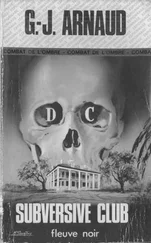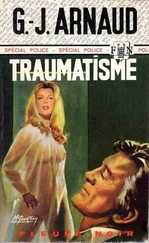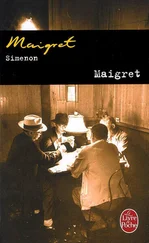Georges Beaume - Fromentin
Здесь есть возможность читать онлайн «Georges Beaume - Fromentin» — ознакомительный отрывок электронной книги совершенно бесплатно, а после прочтения отрывка купить полную версию. В некоторых случаях можно слушать аудио, скачать через торрент в формате fb2 и присутствует краткое содержание. Жанр: foreign_antique, foreign_prose, на английском языке. Описание произведения, (предисловие) а так же отзывы посетителей доступны на портале библиотеки ЛибКат.
- Название:Fromentin
- Автор:
- Жанр:
- Год:неизвестен
- ISBN:нет данных
- Рейтинг книги:5 / 5. Голосов: 1
-
Избранное:Добавить в избранное
- Отзывы:
-
Ваша оценка:
- 100
- 1
- 2
- 3
- 4
- 5
Fromentin: краткое содержание, описание и аннотация
Предлагаем к чтению аннотацию, описание, краткое содержание или предисловие (зависит от того, что написал сам автор книги «Fromentin»). Если вы не нашли необходимую информацию о книге — напишите в комментариях, мы постараемся отыскать её.
Fromentin — читать онлайн ознакомительный отрывок
Ниже представлен текст книги, разбитый по страницам. Система сохранения места последней прочитанной страницы, позволяет с удобством читать онлайн бесплатно книгу «Fromentin», без необходимости каждый раз заново искать на чём Вы остановились. Поставьте закладку, и сможете в любой момент перейти на страницу, на которой закончили чтение.
Интервал:
Закладка:
Georges Beaume
Fromentin
I. – THE FIRST STEPS
EUGÈNE-SAMUEL-AUGUSTE FROMENTIN-DUPEUXwas born at La Rochelle on the twenty-fourth of October, 1820. His family was a very old one and held in high honour throughout Aunis and Saintonge.
Aunis, one of the ancient provinces of France, glows languidly beneath the caresses of a humid sun, enveloped in a thin veil of ocean mists, and at times she seems to float in the midst of her waves and her sands, beneath a sky bounded by remote and indeterminate horizons, vague and immense, like some vast wreckage overgrown with gardens and oases. For more than a century, she was downtrodden by the English. But if she owes them the pain and humiliation of defeat, they at least inspired her with a passion for commercial greatness and a desire for wealth. Through her shipowners and bankers, she amassed riches that permitted her to devote a goodly share of her days to leisure and festivities, for the betterment of her material welfare and the embellishment of her mind. Thus in the midst of this industrious community, faithful to its duties, jealous of its liberty, there was slowly formed a powerful and cultured bourgeois class, eager for all forms of intellectual improvement.
Eugène Fromentin’s family was, on the father’s side, attached by ancient roots to the soil of Aunis. His ancestors were nearly all of them lawyers and judges, and as far back as they can be traced, even to the beginning of the eighteenth century, formed a part of this bourgeois class, which, in that region of ardent Protestantism, constituted a sort of aristocracy.
His father was a physician of great ability, and for thirty-three years was director of the Lafond insane asylum, which he had founded not far from La Rochelle. He had a reputation for wit, but indecision and suspicion stifled the better impulses of his nature. Fromentin’s mother, whose educational advantages had been slight, had by contrast a sensitive and warmhearted disposition. It was she whom the painter resembled in all the details of his physical nature and in all the qualities of his moral nature, while Charles, his elder brother, practical and taciturn, resembled their father, whose vocation he followed.
The mentality of Eugène Fromentin developed early. At school, he surprised all his instructors by his ability to assimilate knowledge and to think things out for himself, and he was loved by them all. Later on, he confessed that “his childhood had been very lively, almost boisterous.” But somewhere during his fifteenth year, a marked change took place in him. “I had involuntarily formed the habit,” he confessed further, “of reserve and silence, a habit that was often to my disadvantage, and which was respected quite as much through pity as through tolerance. Yet it is to this habit that I owed the chance to develop in accordance with my nature; otherwise, I should have grown up warped and unfit.” And M. Pierre Blanchon, from whose admirably documented volume 1 1 Eugène Fromentin, Lettres de Jeunesse .
these details are borrowed, adds further: “His views upon art and poetry clashed with the bourgeois ideas of his environment; the doctor looked upon them as mere nonsense, while his mother feared that they would lead him into temptation.” As a matter of fact, at the very period when he was passing through the moral crisis of adolescence, a romantic attachment shook his soul to its very depths with the emotions of love.
About half a league from town, just before entering the village of Saint-Maurice, the Fromentins owned a country place. The country roundabout is nothing but a level plain, fertile and bare, stretching away to the coast, where the sea, harnessed by Richelieu, loses, among its encroaching capes and islands, all its grandeur and poetry. Among their country neighbours there happened to be a certain Madame X., left, at the age of forty-three, the widow of a captain in the merchant marine. She spent her winters at La Rochelle and her summers at Saint-Maurice. She had a daughter, born at Port Louis, in the island of Martinique, in 1817, and consequently three years older than Eugène Fromentin. Madeleine – let us, from a feeling of pious respect, refer to her only by the name she bears in Dominique – Madeleine, being of Creole blood on her mother’s side, had the darkest of hair and eyes, combined with a fair and almost colourless complexion. We know next to nothing about her. He had conceived for her a violent attachment. Brusquely, she was snatched from the heaven in which the secret hopes and dreams of his fifteen years had framed her. She became the wife of an assistant collector of taxes. Fromentin suffered impotently from jealousy, and all the more because his passion was sincere and ingenuous. His light-heartedness vanished, together with his self-assurance; he mistrusted his own sentiments, he probed and analyzed his thoughts. To retire to the comforting privacy of his fireside and bury himself in literary work, poetry, critical essays, fragments of drama, such was his way of healing his wounds.
Some of these productions of his adolescence reveal him as a student well grounded in rhetoric, very serious-minded and painstaking, nurtured on the solid substance of the best classics, and possessed of an uneasy spirit, in which there had already awakened a taste for big, fundamental ideas, together with a goading ambition to achieve, through his own unaided efforts, some creative work of beauty. Furthermore, these early efforts show a great facility of expression, an abundant and substantial eloquence that seeks distinction, not by affecting strange mannerisms, but by frankly employing the simplest of methods.
Having completed his college course, Fromentin lived for a year somewhat at haphazard. His literary efforts became known in La Rochelle, and before long won him the esteem of the numerous men of letters who, in those days, to us the legendary days of the post-chaise and stage-coach, were drawn to a city where the social life was so distinctive and so intense. From time to time, he would steal out in the evening and furtively slip a manuscript in prose or verse into the letter-box of the Journal de La Rochelle . The next morning the poem or story or critical paragraph would appear, without signature, in the columns of the journal. But everyone who read it would, without hesitation, mentally sign the name of Fromentin.
He was now beginning to sketch and paint. The morose doctor, his father, who was himself an amateur artist of no mean ability, initiated him into the rudiments of the craft. The hour had come, however, for choosing some serious career for the lad. Charles was in Paris, studying medicine. Eugène was piloted in the direction of the law. He left La Rochelle in November, 1839, not without some pangs, for he was leaving behind him, perhaps forever, the woman whom he had worshipped with all his soul; and, sensitive and nervous as he was, he experienced a genuine dread of invading unknown territory, the huge city of Paris, so far away from his own kindly province, which had been so indulgent to his early efforts, so tender to the first dreams of his heart. At this time, his figure was slender and well proportioned, save that he was somewhat too short in the leg. His head was comparatively a trifle large. His pale complexion was at times tinged with a faint flush. His long brown hair fell upon his shoulders. His cheeks were full, the contour of his face formed a fine, elongated oval. His lips, surmounted by a budding moustache, were heavy; his forehead high and rounded and very handsome. His nose, which in later years filled out and assumed an aquiline form, was at that time perfectly straight. His eyes, beneath well-formed eyebrows, were brown, and perhaps somewhat too large, but very attractive and very gentle, far more so than they were later on; in moments of enthusiasm, which in those days were fairly frequent, or when under the influence of astonishment or sadness, he would raise them towards heaven with an expression of profundity.
Читать дальшеИнтервал:
Закладка:
Похожие книги на «Fromentin»
Представляем Вашему вниманию похожие книги на «Fromentin» списком для выбора. Мы отобрали схожую по названию и смыслу литературу в надежде предоставить читателям больше вариантов отыскать новые, интересные, ещё непрочитанные произведения.
Обсуждение, отзывы о книге «Fromentin» и просто собственные мнения читателей. Оставьте ваши комментарии, напишите, что Вы думаете о произведении, его смысле или главных героях. Укажите что конкретно понравилось, а что нет, и почему Вы так считаете.












